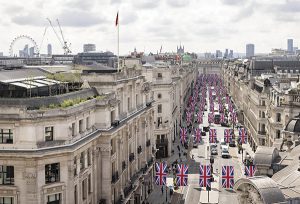Prime Minister Boris Johnson wants “Global Britain†to be seen as a superpower once again. While his Conservative government doesn’t seem quite certain how to manage this, it argued in a landmark policy paper last year that, in one area at least, the goal had already been achieved: The United Kingdom was a “soft-power superpower.â€
According to the government, this strength is “rooted in who we are as a country: our values and way of life, and the vibrancy and diversity of our Union.â€
It’s odd, then, that Johnson and his ministers are at the same time assiduously working to diminish Britain’s soft power along almost every dimension.
The policy paper noted that “the BBC is the most trusted broadcaster worldwide, reaching 478 million people every week, in 42 languages.†The Tories’ culture secretary wants to defund it. The paper also boasted that the UK was a “a global leader in diplomacy and development.†Yet Johnson and his chancellor have abandoned a longstanding bipartisan pledge to maintain aid spending at 0.7% of gross national income through good times and bad.
Now the government appears to be trying to redefine “British values†to exclude human rights as understood for over two decades.
Earlier this month, the Queens’s Speech — which is used by governments to outline their proposed legislative agenda — revealed that a “Bill of Rights†would be introduced to replace the 1998 Human Rights Act (HRA) and “restore the balance of power between the legislature and the courts.â€
The HRA protects certain basic rights — including the rights to life, freedom of speech, privacy and property, among others — and bans discrimination, torture and forced labour.
Parliament doesn’t seem to think its power has been constrained: A joint committee of the UK’s two legislative chambers concluded last year that the act “was designed to maintain parliamentary sovereignty†and that “there is no case for changing the Human Rights Act on the basis of the impact on the separation of powers in the UK.†The Bar Council agrees that “the central machinery of the HRA … has operated well and stood the test of time.â€
The real problem for the Tories is that the Human Rights Act is irredeemably European. It essentially allows British courts to enforce rights guaranteed under the European Convention of Human Rights, designed in 1949 by the Council of Europe. Ironically, the UK was the first country to ratify the Convention — in 1951, urged on by the presiding officer of the first Congress of Europe, Winston Churchill, and his description of “a charter of human rights, guarded by freedom and sustained by law.â€
—Bloomberg
 The Gulf Time Newspaper One of the finest business newspapers in the UAE brought to you by our professional writers and editors.
The Gulf Time Newspaper One of the finest business newspapers in the UAE brought to you by our professional writers and editors.
